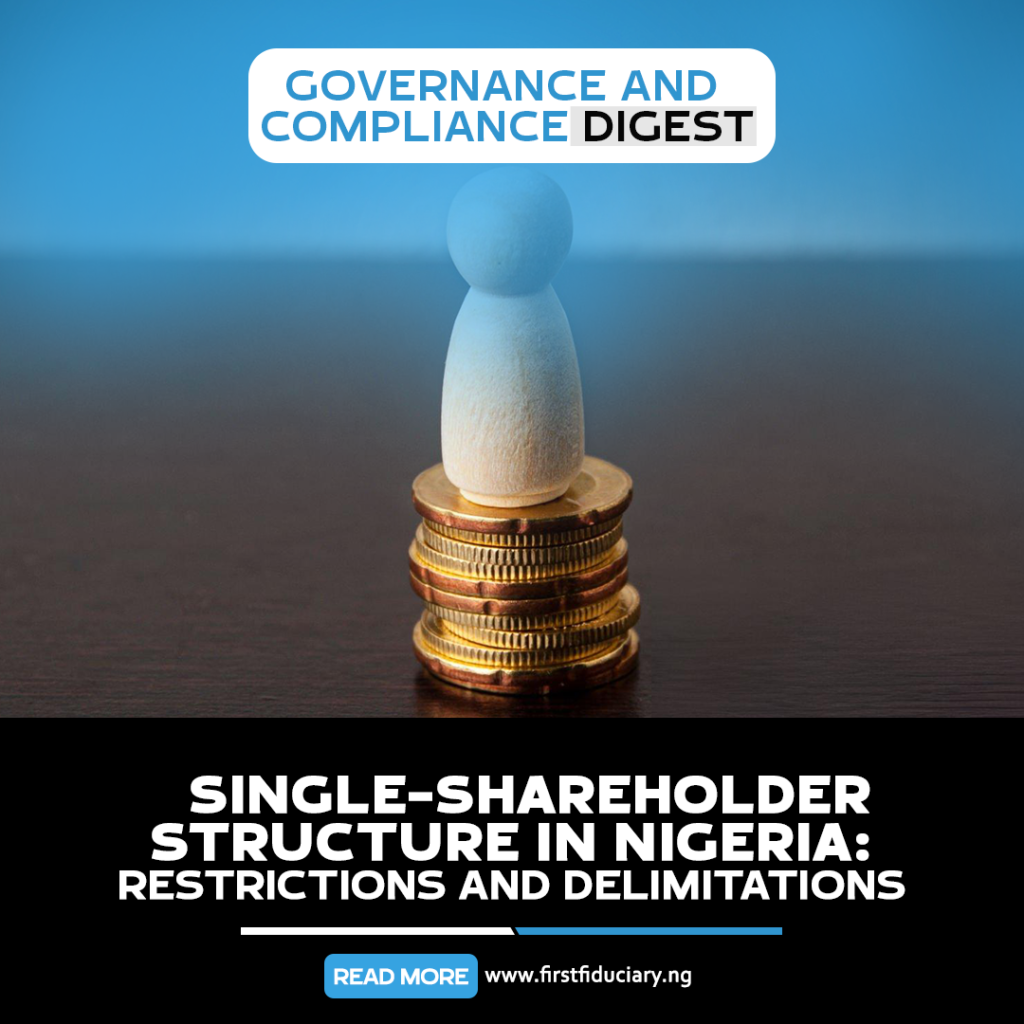SINGLE-SHAREHOLDER STRUCTURE IN NIGERIA: RESTRICTIONS AND DELIMITATIONS
INTRODUCTION
Nigeria’s corporate landscape witnessed a significant milestone with the Federal High Court’s (FHC) landmark ruling on July 30, 2024. This judgment has far-reaching implications for businesses seeking to adopt a single-shareholder structure under the Companies and Allied Matters Act 2020 (CAMA 2020).
BACKGROUND
Nigeria was ranked 146 out of 190 countries on the 2019 World Bank global index for the Ease of Doing Business, this reflected the stifling regulations and various bottlenecks for both local and foreign businesses in Nigeria as represented by the Companies and Allied Matters Act, 1990 (CAMA 1990) which regulated the corporate ecosystem of the country at the time.
In the wake of prolonged regulatory debates and law reform deliberations, the Companies and Allied Matters Act 2020 (CAMA 2020) was enacted, and this has completely revolutionized corporate law in Nigeria by the introduction of several new concepts that promotes ease of doing business and reduce regulatory obstacles. The 2022 World Bank global index for the Ease of Doing Business ranked Nigeria 131 out of 190 countries and this is an improvement from the 2019 rankings.
